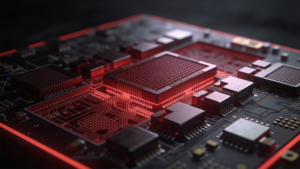The hospitality industry was already working to implement more contactless technologies pre-COVID-19, but the pandemic accelerated many rollouts and pushed trials to implementations. Hotels are experimenting with limited front desk staff, virtual concierges, smart rooms, and robot deliveries. It will be interesting to watch this evolution in an industry that, at heart, is based on welcoming and providing guests with a warm reception and experience, and to see what will be the new normal.
Contactless payments, self-check-in, and keyless room entry—what will this mean for front desk staff and concierge services? According to a white paper from Operto Guest Technologies, 76% of hoteliers are planning to reduce front desk staff significantly in the next 12 months. I am sure all travelers have a tale of a welcoming hotel staff member going the extra mile or solving a problem in a way only a human could. My family still remembers the concierge who tracked down my child’s favorite stuffed animal that was left in an airport shuttle after a long travel day to Paris. However, due to the desire to social distance, some travelers simply want fewer humans in their mix during their travel journey. According to a 2021 report from Skift & Oracle, 61% of travelers say contactless/low-touch experiences (i.e., self-serve) are somewhat or very important to travelers when considering a stay at a hotel or short-term rental. On the flip side, while interviewing CX providers for an upcoming report on CX in travel and hospitality, one of the trends that is emerging is the need for empathy throughout a customer’s travel journey and the fact that it will be imperative to ensure that travelers feel well supported and taken care of, especially during these times of uncertainty.
Focusing on contactless technologies, hotels will likely implement a range of tools and services that provide the no-contact experience travelers are desiring, while also having staff on hand to solve more complicated issues. According to the Oracle and Skift survey, 76% of hoteliers offer contactless payment options, 36% self-service check-in, 59% digital messaging services to limit staff/guest interactions, and 42% smartphone-based room keys. As an example, StayNTouch offers mobile check-in or check-out, as well as a guest self-service kiosk option. Similarly, aavgo offers technology for contactless on-site check-in, remote check-in, and a human-assisted virtual front desk kiosk. Once checked-in, many current travelers are hunkering down a bit in their rooms while onsite, instead of exploring hotel amenities, such as restaurants, shopping, gyms, or the concierge desk. Some guests will benefit from smart room technologies, where all their needs can again be taken care of in a contactless manner. Hilton implemented touchless room controls, such as for TV remote, room temperature, and lighting, via guest’s mobile devices back in 2018. IHG Hotels & Resorts has worked with Josh.ai to enable voice-controlled smart rooms at one of its Palm Springs, California properties. Josh leverages natural language processing and pattern recognition in an unobtrusive way. Aside from room controls, it can also be used as a guest concierge, perhaps telling a guest what the top 10 places to take a hike within 10 miles are, or where to rent a kayak.
It will be important during this uptake in technology to still engage with guests in a personalized and time-sensitive manner, gathering feedback and acting upon it quickly. Less human interaction means that hotels are leaning in on contactless personalized communications platforms, such as Medallia’s Zingle, to not only allow for contact-free arrivals and departures, but to allow for concierge and housekeeping requests, as well as to receive and resolve feedback issues in real time. As travelers navigate these complicated times, CX and CX-supporting technologies will be critical to help guests feel safe, supported, and heard.
Author Information
As a detail-oriented researcher, Sherril is expert at discovering, gathering and compiling industry and market data to create clear, actionable market and competitive intelligence. With deep experience in market analysis and segmentation she is a consummate collaborator with strong communication skills adept at supporting and forming relationships with cross-functional teams in all levels of organizations.
Sherril holds a Master of Business Administration in Marketing from University of Colorado, Boulder and a Bachelor of Arts in Psychology from Rutgers University.








